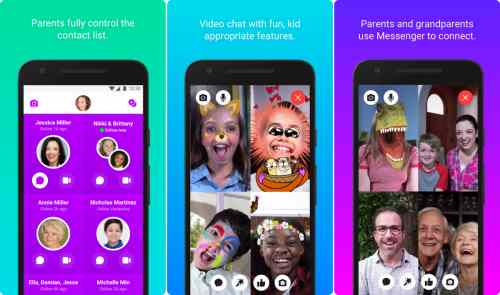On December 4, 2017, Facebook rolled out a preview of Messenger Kids.
It is a free video chat and messaging app designed for children younger than 13.
According to Facebook, kids can’t add anyone to their contact list without their parent’s permission. All of the content on the app is “kid-appropriate” and ad-free as well.
Facebook claimed to have met with dozens of experts in child development, online safety, and children’s media and tech over the course of 18 months to ensure the app would be both fun and safe, but that wasn’t enough to stop the backlash that soon followed its release.

On January 30, 2018, the Campaign for a Commercial-Free Childhood (CCFC)sent Facebook a letter signed by dozens of experts in childhood health, education, and media imploring the company to shut down the app, citing concerns that it would “undermine children’s healthy development.”
In addition, the letter referenced a number of peer-reviewed studies linking teen and preteen social media use to unhealthy sleep habits, depression, body image issues, identity theft and lots more.
As Josh Golin, the CCFC’s Executive Director, told Futurism, “Younger children simply aren’t ready developmentally for social media. An extensive body of research shows that excessive use of social media is harmful to teens. Younger children are even less equipped to deal with its interpersonal challenges and the addictive lure.”
According to Golin, Facebook already has an incredible reach. Allowing the “master marketer” to extend that reach to include children could cause irreparable damage.
“Messenger Kids has the potential to normalize social media use by 6-, 7- and 8-year-olds, and that would be a bad thing,” he said.
“Moving friendships online displaces the face-to-face interactions crucial for developing empathy and healthy relationships.”
Golin suggests families wait until children are at least 13 years old before introducing them to social media.
“Developmentally, most kids just aren’t ready before then,” he told Futurism. “And the more families hold out on letting their kids use social media, the easier it becomes for other families.”
Facebook is yet to publicly respond to the CCFC’s letter. However, their decision to release an Android version of Messenger Kids on February 14 is a response in itself .
Does this mean that Facebook cares about statistics than how this development will affect children negatively?



